As Austrians head to the polls this weekend, immigration is one of the main concerns of voters. Current opinion polls suggest the far-right anti-migrant Freedom Party could win the most votes. What would that mean for migrants and migration policy?
As Austria’s state broadcaster ORF recently put it, "hardly any political debate these days can take place without including the themes of migration."
Immigration is a central issue for the public, too. A poll conducted by the broadcaster found it to be a topic that voters of all leanings consider "very important," in addition to the economy and the war in Ukraine.
With the country preparing for elections this Sunday, September 29, the most recent opinion polls suggest that the outcome could be historic: for the first time, the right-wing populist Freedom Party of Austria (FPÖ) looks set to win the most votes. Polls put their share of the vote between 27-29 percent. According to a European polling and voting trends platform, Politpro, the FPÖ has gained over 10 percent voting share since the last elections in 2019.
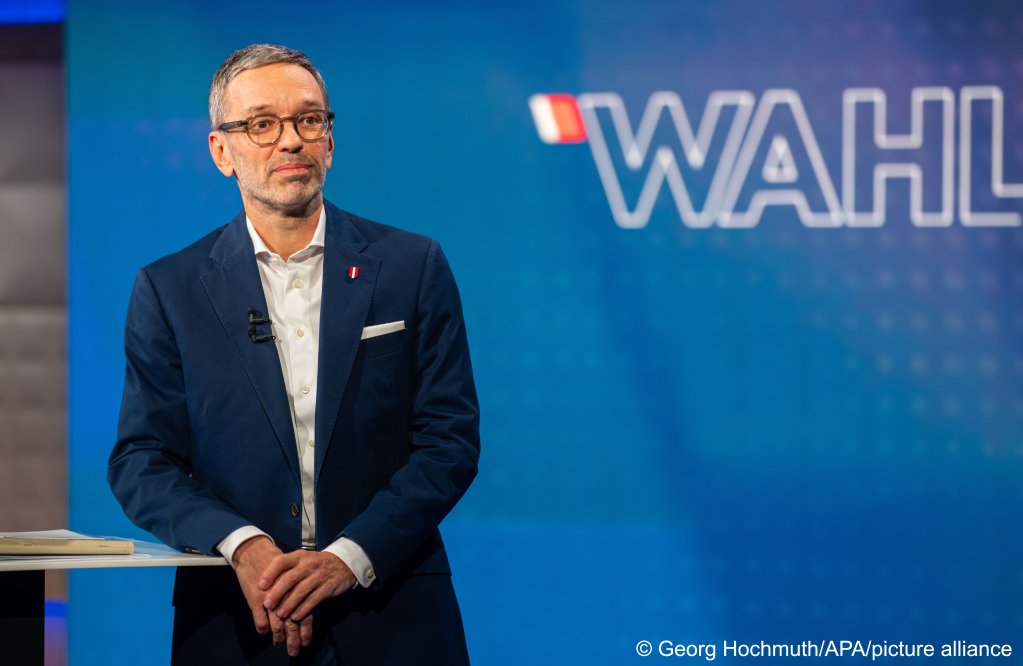
The party, led by Herbert Kickl, a 55-year-old marathon runner and climber, has been leading the opinion polls since 2022, the Guardian newspaper reports. It also received the highest share of the vote from Austrian voters in this May’s European elections.
Political experts say Kickl has profited from dissatisfaction with the current ruling coalition between Greens and conservatives and the soaring inflation besetting the country, and much of Europe.
Also read: Austria pushes EU to consider repatriations to Syria and Afghanistan
'Austria First' – the Freedom Party's election promise
The Freedom Party’s election program is entitled "Austria First," echoing Donald Trump’s previous "America First" campaign. The Freedom Party is likely to garner between a quarter and close to a third of votes in Austria. Under the banner "Fortress Austria, Fortress of Freedom" it has promised to cut social benefits for irregular migrants and asylum seekers, block family reunification possibilities even for migrants already in Austria and promote the xenophobic policy of "remigration".
Like several other far-right parties around Europe, including the AfD in Germany and the right in Italy, the Freedom Party advocates pulling back on help for Ukraine, and tends to favor cooperation or talks with Vladimir Putin’s Russia. The party is also generally Europe-skeptic.
The FPÖ's election manifesto makes it clear that it wants to put Austrian people and their culture first, above all else. It states that it is "committed to our homeland of Austria as part of the German-speaking linguistic and cultural community." It also mentions that its first concern is "groups of people native to our country."
Also read: As Europe shifts further right, migrants fear for their futures
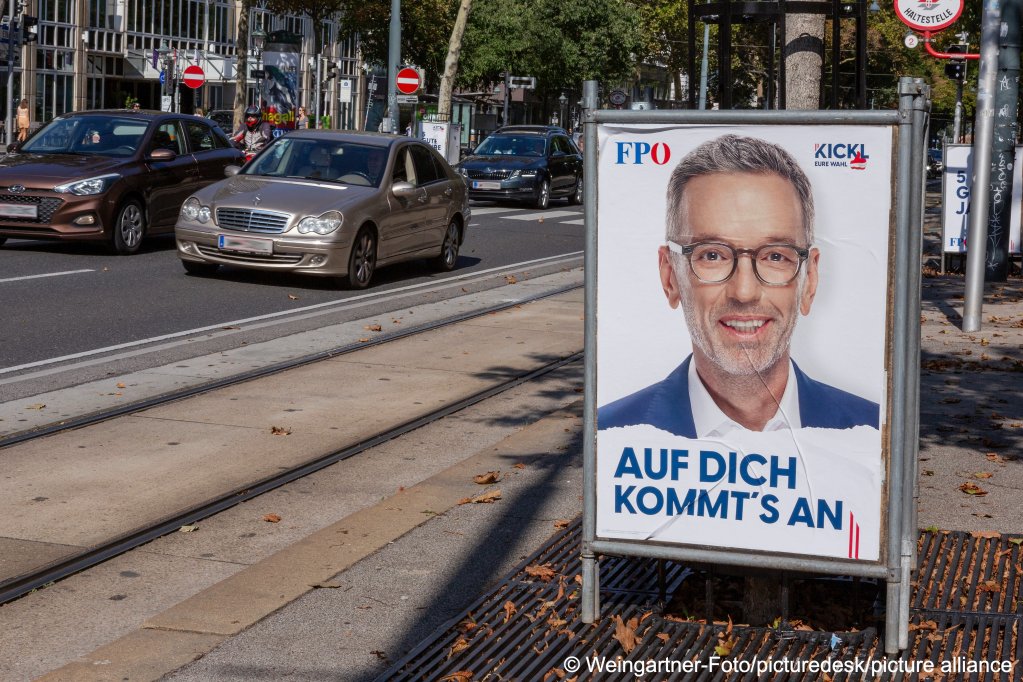
'Austria is not a country of immigration'
The Freedom Party does concede, when it writes "native" to Austria, that it includes "historical minorities", including populations which have for centuries been part of Austria, and formerly the Austro-Hungarian empire. "Croats, Slovenes, Hungarians, Czechs, Slovaks and Roma," it says, are an "integral part of Austria." However, it underlines once again that it believes Austria is "not a country of immigration."
Austria of course already has immigrants living in the country. They make up a little over a quarter of the population, according to the government's statistical yearbook from 2023, which examines data from 2021 and 2022. In 2022, there was an increase in the foreign population living in the country. More than half of those people belong to "first generation" immigrants, meaning they were born abroad, states the yearbook.
The FPÖ makes it clear that it is only open to "legal and legitimate immigrants who are already integrated, can speak the German language [and] fully acknowledge our values and laws." Only those people, believes the party, should have the right to stay and obtain citizenship.
The party also promises to deport "foreigners convicted of a crime in Austria." It also nods to the right-wing populist policies that seek to paint migrants as an invasion who are hoping to infiltrate and change a European way of life. In its manifesto, the party says it "firmly reject(s) any artificial synchronization of the diverse European languages and cultures by means of forced multiculturalism, globalization and mass immigration."
Also read: 'Remigration,' far-right extremists to hold forth in Berlin
Can Kickl lead?
With the Austrian People's Party (ÖVP) – currently governing in coalition with the Greens – polling just behind the Freedom Party, election analysts say there is still time for the ÖVP to regain a point or two and come out top once again. The platform Politpro points to the fact that in the last 30 days, the ÖVP has increased its polling by 1.9 points.
Both parties have quite similar approaches to the economy and immigration and have governed together in an ÖVP-led coalition in the past.
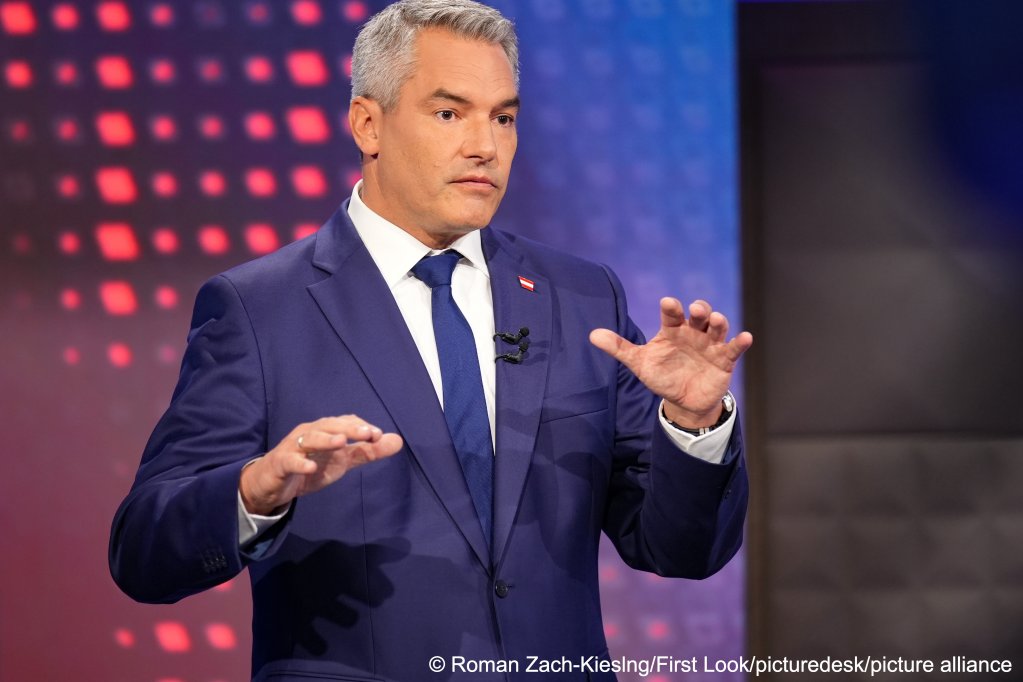
It is less likely, however, that Kickl could persuade other parties to enter a coalition with him as leader. Karl Nehammer, leader of the People's Party and current prime minister, has already ruled this out, saying Kickl himself is more radical than his predecessors. The other parties have done the same, saying they want to prevent "extremists" from leading the country.
"He is the rudest politician in the country," journalist Nina Horaczek, who analyzed Kickl's speeches in a book published this year, told the French news agency Agence France Presse (AFP). Kickl was reported to have referred to President Alexander van der Bellen as a "senile mummy" reports AFP.
In Austria, election convention means that the president formally asks a party leader to try to form a coalition. This need not be the party that has the greatest vote share, if its chances of forming a coalition look more difficult or unstable.
In a recent interview with ORF, van der Bellen said, "I would do everything in my power not to invite an anti-European party, and a party that has not condemned Russia’s war in the Ukraine, into power to lead the country."
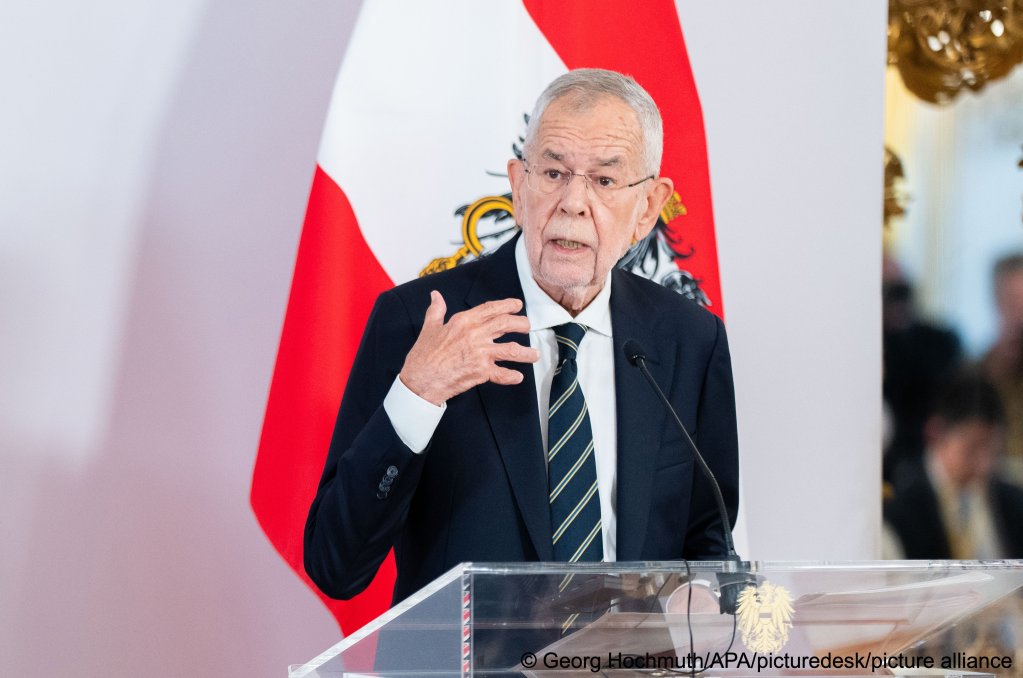
Extremist links?
Some of the concerns about the FPÖ are linked to the history of Austria and Germany and the rise of Hitler and the Nazi party prior to the Second World War. The FPÖ sparked fury last year with a video posted on social media that appeared to espouse an extremist conspiracy theory that white Europeans are being replaced by migrants.
The video also featured the Vienna balcony where Adolf Hitler gave his speech when he returned to his homeland in triumph after the Nazis annexed Austria in 1938, reports AFP.
Critics point to the fact that the party was originally founded in the 1950s by people who had been in the Nazi party, or members of the SS (the elite fighting force charged with many of the crimes committed during the Holocaust).
Kickl has even referred to himself as the "Volkskanzler" --the people's chancellor-- a term used by Hitler in the 1930s.
Kickl himself denies "Volkskanzler" is a Nazi reference, insisting that several politicians had claimed the term for themselves in the past.
But the far-right leader has never made a secret of his closeness to extremist groups, expressing his support for the Identitarian Movement as early as 2016, reports AFP.
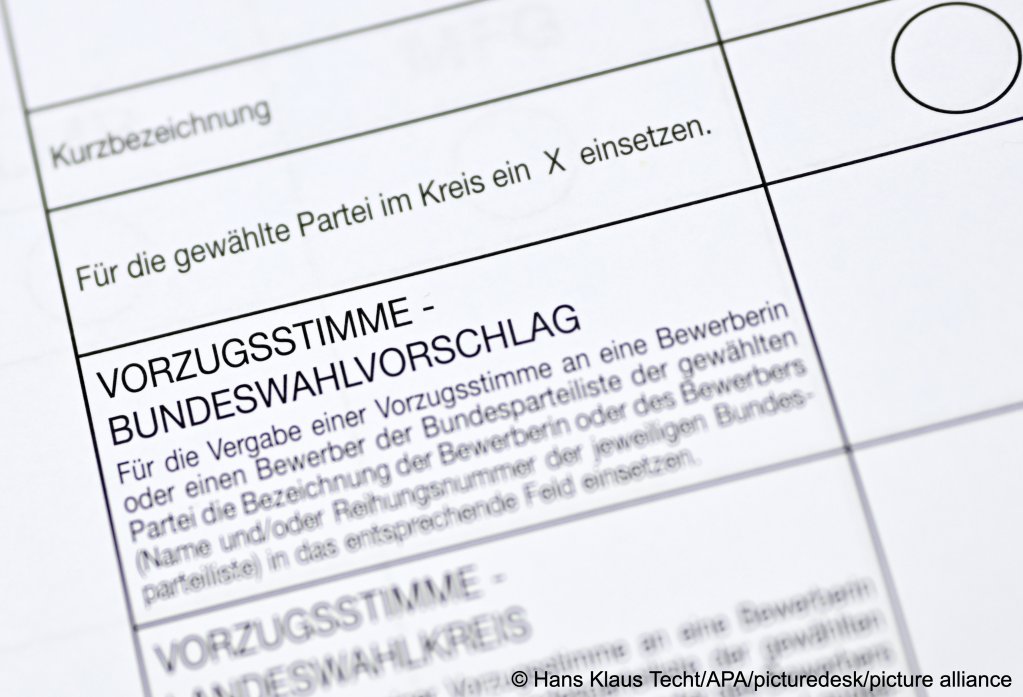
Walking a fine line
Kickl is a professional politician and has been active with the FPÖ since 1995. At university, he studied philosophy, history, communication and political science.
Analysts like Horaczek believe he carefully makes some of his more far-right references and theories precisely to keep the the far-right supporters of his party on side.
In 2018, during his time as interior minister, Kickl oversaw a controversial raid on the country's secret service, where documents on the links between the FPÖ and extremist circles were seized.
In April this year, prosecutors launched a corruption investigation against him amid allegations that public money was used to pay for adverts and obtain favorable coverage.
Last year, Kickl appeared on posters in his home region of Carinthia, dressed in a green parka jacket with military overtones alongside the slogan: "Fortress Austria -- closing borders, guaranteeing security."
For the upcoming national elections, he has changed into a suit, but has kept the slogan, reports AFP.
Social welfare caps?
Even if Kickl and his party are not permitted to lead Austria after the vote, their share of the vote is likely to help them influence policy in parliament.
In August, news published in Austria’s Kronen Zeitung newspaper revived the debates surrounding migrants and social welfare benefits.
According to ORF, the tabloid reported on a large Syrian migrant family said to be receiving 4,600 euros net a month in state benefits. This prompted political parties to weigh in, promising voters what they would do differently in the future.
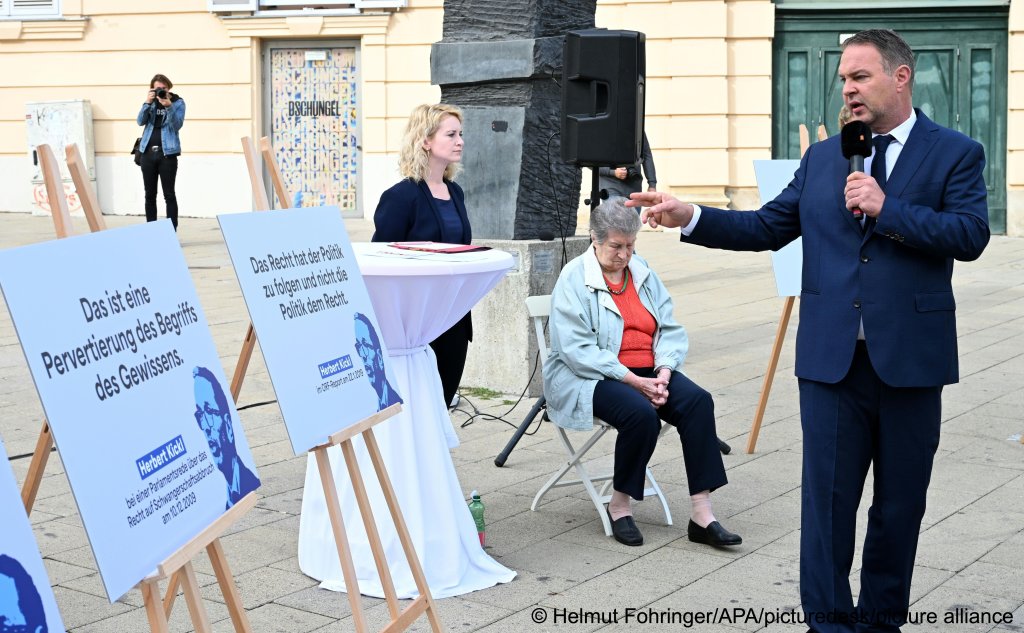
The governing People's Party has stated that it wants to make sure that recognized asylum seekers have to wait at least five years before they are entitled to the full social welfare benefits. However, some legal experts told ORF that it could be against the law to withhold benefits to certain communities.
The Freedom Party wants to remove social welfare benefits completely from migrants, even recognized refugees. This too would be against the law, states ORF, since recognized refugees have the same rights as Austrian citizens. The Social Democratic Party (SPÖ) doesn’t believe that any changes need to be made to asylum seekers' benefits but has proposed a change to the child benefit, offering families 367 euros per child per month.
The citizenship issue
Anti-racism campaigners like Alexander Pollack from the Austrian organization SOS Mitmensch worry that the Freedom Party's influence in parliament after the elections could make policies regarding citizenship even tougher.
Pollack says that the citizenship laws in Austria mean that many people born to foreigners in Austria stay as "foreigners" and are never given the right to become Austrian, making it difficult for them to vote and really take part in society, even if they were born and educated in Austria and now pay taxes in the country. Pollack says that because of the rules, every fifth adult is prevented from voting.
In the capital Vienna, only every third person has the right to vote. Pollack believes this is shrinking the idea of democracy in the country.
He also claims that the Freedom Party's increase in popularity has made other parties more careful about what they are seen to be doing, and who they are seen to support, in particular with the Muslim community.
